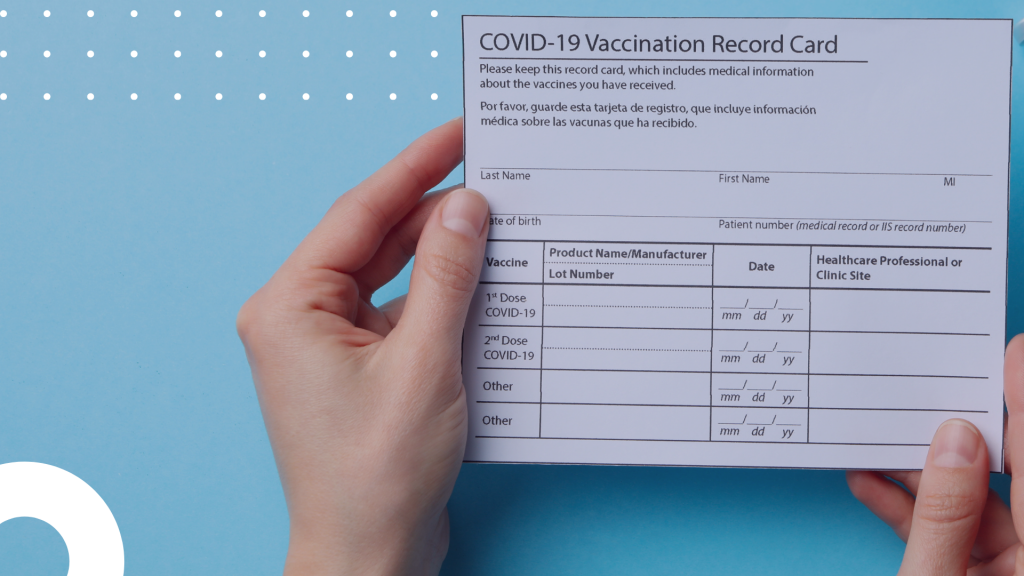18 Feb

Five Bold Predictions for the Event Industry in 2021
A little over nine months ago, back in February, RSVPify staff noticed a rapid trend in event cancellations around the world. From RSVPify users postponing weddings or business meetings to major worldwide events (culminating in the decision to postpone the 2020 Olympic Games in Tokyo), we wrote a piece about how COVID might raise some specific challenges for the event industry over the rest of 2020.
As the calendar turns to 2021, that take on the event industry seems like quite an understatement. Little did we, or anyone, know to what degree the COVID-19 pandemic would disrupt the event industry, never mind the lasting impact it’d have on nearly aspect of the daily lives of most of humanity. Phrases like “Zoombombing”, “virtual concerts”, and “immunity passports” have now become commonplace. Even traditional social events with significant cultural importance (weddings, Bar/Bat Mitzvahs, class reunions, etc.) began to move to virtual formats as hosts became increasingly frustrated with perpetually having to reschedule. When it became clear that mitigation strategies would not suffice in much of the Western World, we then looked to the promise of vaccines as our North Star to deliver us to a sense of normalcy in 2021. Well, our faith / hope in the development of a vaccine(s) was short sighted, as what we actually need is vaccination.
Given our lens as an event technology platform, we spent some time reflecting at the end of 2020 on the state of the industry and thought we’d come up with (and share!) some bold predictions for the coming year. These bold predictions are exactly that – bold, because if we’ve learned anything from 2020, it’s that you never quite know what the future holds. But here are our five predictions for trends that will emerge in the global event industry over the coming months.
Prediction #1: After a long year inside, the surge for in-person events this summer will be massive
We’ll start with the boldest prediction we have – that traditional, in-person events will see a comeback bigger than ever before at some point in 2021. It isn’t exaggerating to say that millions of people cancelled life events in 2020, with the hopes of instead enjoying those events with friends, family, co-workers, and colleagues this year instead. Don’t believe us? Here are a few reasons why an in-person event renaissance in 2021 looks likely to us:
- Demand, demand, demand. RSVPify alone saw thousands of events postponed due to government restrictions on gatherings, safety concerns, and the simple desire of event hosts to wait for a less uncertain time. Those events haven’t gone away – in fact, we anticipate that by this summer you’ll start seeing a deluge of (online) invitations and event announcements of 2020 events that have been rescheduled.
- Why by this summer? First, after six months, vaccinations should become available to a significant portion of the global population. With more vaccinated individuals, hosting in-person events will not include the risk and uncertainty as it has the past twelve months.
- Secondly, one thing the science has told us about COVID-19 is that outdoor events are far safer for attendees than indoor options. The summer months offer event hosts plentiful options for moving events outdoors, meaning that even if vaccinations are still lagging, hosts can be confident they can safely host an in-person outdoor event for attendees.
- There is a downside for event hosts here – event vendors from venues to caterers to event management companies will also be quickly overwhelmed by the backlog of postponed events. Our pro tip to you – start booking venues and vendors as soon as possible, even if you aren’t sure your event will take place. You don’t want to be stuck without these critical event supports if you try to create your event too late in the year.
Prediction #2: Certain Event Types Will Remain Virtual or Hybrid For Good
While all of us have missed social interactions and the ability to get together in person, another lesson from the COVID-19 pandemic has been that certain event types (like regional management meetings, in-person recruitment drives, and others) function nearly as well online.
Sure, most people would prefer to be married in a beautiful venue with their family and friends in attendance, but the demand for certain types of events that required travel or budgeting for organizations that could be avoided means that certain events will stay virtual (or hybrid, with both in-person and remote elements).
We anticipate that corporate event planning will be affected the most by this significant shift. As companies that experienced significant impacts to revenue and cash streams plan for the coming year, events that can be hosted easily and significantly more cheaply through online event management platforms seem like a logical place to cut costs.

Prediction #3: COVID-19 Restrictions and Laws Will Continue to Inhibit the Event Industry in Different Ways
We have all gotten used to the ever-shifting nature of state and national policies around managing public health and safety. While the lack of unified strategies across state and national borders has been a frustration in countless ways, there’s no reason to think that this problem will be solved until the pandemic has largely been overcome.
The bad news is that this will require a lot of careful consideration by event planners in terms of logistical issues with hosting in-person events, such as:
- If vaccines continue to be distributed slower than hoped, or new strains of the virus emerge that affect vaccine effectiveness, any progress towards resuming normal in-person events will likely remain muted. The risk and liability of hosting an event that may lead to a superspreader situation will still be too great for many event hosts to chance.
- We have already seen certain countries (such as New Zealand) largely contain their outbreaks, while others (like the U.S. and throughout Europe) continue to struggle with community spread. This can lead to a situation where restrictions in some countries are significantly more onerous than others – and will make hosting events requiring international attendees hard to plan for, or host at all, as public safety measures constantly shift.
- Health protocols (such as temperature screenings or vaccine or immunity checks) will be a necessary part of any in-person event, likely throughout the coming year. This means that event hosts must consider the costs, logistics, and effort involved in hosting an event while including health protocols that effectively prevent an infected attendee. These concerns may also limit some event hosts who don’t have the resources to effectively implement these measures.
- Finally, the long-term impacts to the travel industry are still unknown. Will less international or domestic flights be available in the future? Will travel costs skyrocket to match health safety requirements from various countries? If your guests can’t make it to your event, if they want to and are able, event hosts have yet another concern when doing their planning.
Prediction #4: The Immunity Passport or Vaccine Card Will Be As Essential to Event Attendance as an ID Badge
While various countries have kicked around different ideas for helping residents demonstrate their COVID immunity (from mobile apps to vaccination proofs and others), it seems logical that some form of proof of immunity will be a regular part of life for at least the next year.
While event tickets or personal IDs have always been a part of event registration and attendance, we think that whatever choice becomes the global standard for “proof of immunity“, it will be a required element for any event, even casual events like weddings or reunions.
This is largely because event hosts will still experience significant liability considerations in 2021 – insurance companies will only guarantee coverage with demonstrated proof of safety protocols, and vaccine passports or cards will likely be the easiest way to secure that coverage for event hosts and venues.

Prediction #5: When people attend in-person events again, the willingness to spend on those events will skyrocket
Let’s close out our predictions with one that should give beleaguered event professionals more hope for a brighter event future. Just as the demand from backlogged events should lead to a boom for the event industry and venues this coming year, event attendees are equally eager to make the most of their in-person experience after months stuck at home. Why is this a good thing for event profs?
- Consumer willingness to spend more on in-person experiences will be higher than ever, especially for upper-middle-class and upper-class individuals who have largely been spared economic hardships because they could work from home effectively. We anticipate more people will shell out some extra money for better tickets at a concert, a VIP package at a convention, or other features that may have seemed too pricy before the pandemic.
- Events often require travel, but with the global population pent up for a year, more event attendees may use events as an excuse to add some vacation days or bring their friends or families along. Not only will this drive up event attendance, but will also be good news for businesses that rely on event venues (like bars and restaurants near theaters or stadiums) who should see subsidiary spending from event attendees and their co-travelers.
- After a year at home, where we all had time to reassess what we took for granted before, the ability to create memories at events and make the most of the experiences we have has become more tangible than ever. While millions of people worldwide have struggled this past year, the desire to celebrate the end of the most chaotic time in world history since perhaps World War 2 will likely bring about a desire to celebrate the end of an era similar to what was seen after the war ended. To put it another way, the event industry will likely no longer have to sell the value of hosting and attending a great event – the attendees are already sitting at home, waiting for the chance to get out, mingle, celebrate, network, and make memories.









